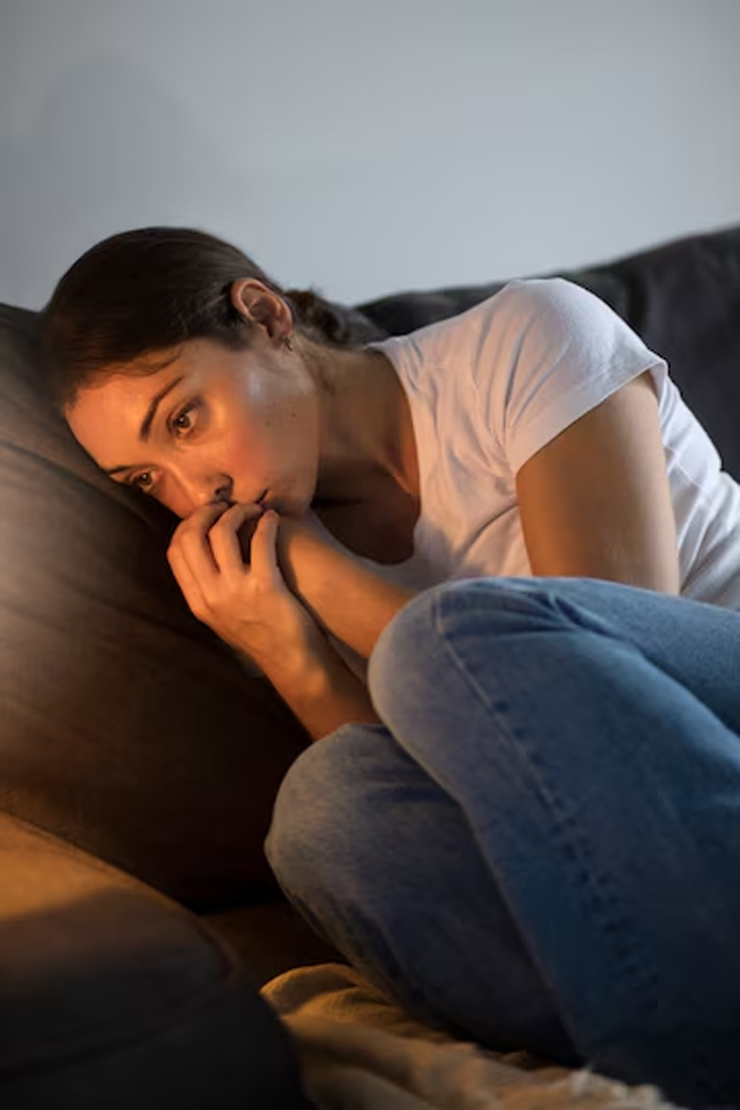
Do you ever feel uneasy as the sun sets and darkness begins to take over the sky? A strange void, an unexplained anxiety, or a fear of the unknown creeping in at dusk? You’re not alone. I’ve felt it too.
Table of Content:-
CHECK YOUR
MENTAL HEALTH

Last year, as the day turned to night, I started experiencing a profound emptiness. I didn’t want to be alone, but I couldn’t bring myself to meet loved ones either. Sunsets, once beautiful and calming, began to fill me with uneasiness. The vibrant skies of orange and purple became a backdrop for tears I couldn’t explain.
This feeling, known as sunset anxiety, is more common than you might think. While many find comfort in the day’s end, others battle waves of worry, racing thoughts, or an unexplainable sense of loss. Whether triggered by reminders of unfinished tasks, solitude, or the natural rhythms of the body and mind, sunset anxiety affects countless individuals, often quietly and unnoticed. Let’s explore what sunset anxiety is, why it happens, and how you can navigate these unsettling moments to find peace at dusk.
To understand sunset anxiety in detail, the OnlyMyHealth team spoke to Priyanka Kapoor, Psychotherapist, Psychologist, and Family Counsellor, Mumbai.
Kapoor explains, "Despite not being a classified disorder, sunset anxiety is a widespread experience for many. It stems from the emotional, psychological, and even physiological effects that the transition from day to night can bring." It is characterised by feelings of unease, panic, or emptiness that arise as the sun begins to set.
Symptoms of Sunset Anxiety
Sunset anxiety can manifest in various ways, including:
A surge of uneasiness or nervous energy.
Racing thoughts, often about tasks undone or existential fears.
Physical symptoms like a racing heart or sweating.
An overwhelming sense of emptiness or sadness.
Who is Prone to Sunset Anxiety?

Sunset anxiety does not discriminate, but certain groups are more likely to experience it. Kapoor explains the following key risk factors:
Pre-existing Anxiety Disorders:
Individuals with diagnosed anxiety disorders or a natural predisposition to nervousness are more susceptible. Kapoor notes, "Those already battling anxiety often find their symptoms intensify as the day winds down."Chronotype and Body Clock:
Your internal body clock plays a role. Night owls, or “evening types,” are more prone to experiencing anxiety in the late afternoon and evening.Traumatic Associations with Evenings:
People who have had negative experiences during the evening may associate dusk with unpleasant memories, triggering anxiety.Perception of Unproductivity:
Working from home has exacerbated sunset anxiety for many. Kapoor explains, "Spending an entire day indoors, staring at screens, and ignoring basic self-care can heighten feelings of wasted time and FOMO (fear of missing out)."Changing Preferences for Evenings:
Individuals who once enjoyed evening activities may feel a sense of loss or disconnection, leading to heightened discomfort at this time.
Also read: What Are Weather-Related Phobias? Know All About It
Management and Coping Strategies

While sunset anxiety can feel overwhelming, there are several effective strategies to manage it:
Engage in Evening Activities:
Finding a productive or enjoyable activity during the evenings can distract from anxious thoughts. Kapoor advises, "Doing something fulfilling helps shift focus from negative emotions to positive engagement."Meditation and Breathing Exercises:
Practices like meditation and pranayama can help calm the mind. Regular practice promotes relaxation and reduces the physiological symptoms of anxiety.Journaling:
Writing down thoughts and feelings can be a powerful tool for processing negativity. Kapoor suggests, "Journaling provides a safe outlet to confront and release troubling emotions."Seek Professional Support:
Consulting a therapist or counsellor can help identify the root causes of sunset anxiety and develop personalised coping mechanisms.Surround Yourself with Supportive People:
Being with loved ones in the evening fosters a sense of safety and security.Prioritise Self-Care Throughout the Day:
Kapoor emphasises, "A balanced day with breaks for physical movement, mindfulness, and hydration can prevent emotional exhaustion in the evenings."
Conclusion
Sunset anxiety is a reminder of the complex interplay between our minds, bodies, and environments. Understanding the symptoms, identifying personal triggers, and adopting targeted strategies can help regain control. As Kapoor concludes, "Sunset anxiety, like any form of distress, can be managed with awareness and effort. It’s essential to approach it with compassion for oneself and the courage to seek help when needed."
Also watch this video
How we keep this article up to date:
We work with experts and keep a close eye on the latest in health and wellness. Whenever there is a new research or helpful information, we update our articles with accurate and useful advice.
Current Version